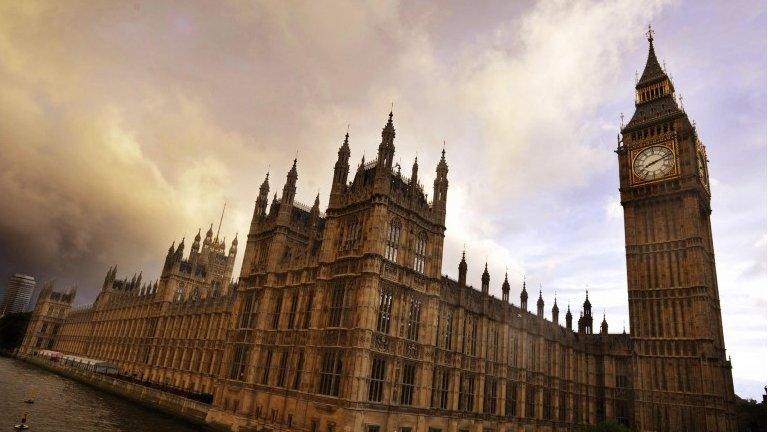UKIP's Nigel Farage 'must face leadership contest'
- Published
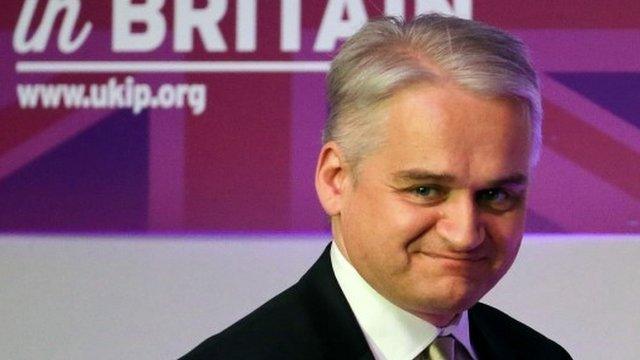
UKIP economics spokesman Patrick O'Flynn also attacked two senior party aides
Nigel Farage has become a "snarling, thin-skinned, aggressive" man, UKIP's election campaign chief has said in a powerful attack on the party leader.
Economics spokesman Patrick O'Flynn told The Times, external Mr Farage risked turning the party into a "personality cult".
And a senior UKIP source told the BBC that Mr Farage should face a leadership contest.
Mr Farage has not yet responded, but a major party donor said the leader had "given his all" to building the party.
Mr O'Flynn's attack comes after Mr Farage stood down for failing to win the South Thanet seat in the general election, but was reinstated three days later when the party refused to accept his resignation.
'Out of control'
Mr O'Flynn said Mr Farage had moved away from being a "cheerful, ebullient... daring" politician.
He also attacked senior aides within the party and told The Times "aggressive" and "inexperienced" staffers must be cleared out.
And a senior UKIP source described Mr Farage's decision to remain leader without a contest as "a tragedy of self destruction".

Analysis by Political Correspondent Robin Brant
There is now a very clear divide at the top of UKIP. On one side there is Patrick O'Flynn, Douglas Carswell and another senior official who was prominent during the election campaign.
On the other side is Nigel Farage, a tight circle of senior aides and the millionaire donor Arron Banks.
The key moment that led to this was the leader's decision to stay on.
Mr Farage said he was "persuaded" by "overwhelming" evidence from UKIP members that they wanted him at the top.
It surprised some, including the party's only MP Mr Carswell. It's what lies behind Mr O'Flynn's claims that UKIP could be seen as an "absolute monarchy".
The dispute is now very public and very nasty. Close allies of Mr Farage have used unprintable four and five letter words in texts to me to describe Mr O'Flynn and Mr Carswell.
All this just days after the party amassed a massive four million votes in the general election and installed itself as the challenger to Labour in the north of England.

The source said Mr Farage's authority risked "draining away" without a contest. He compared it with the plight of Gordon Brown after he was elected without a contest.
Another senior official, who was prominent during the election campaign, told BBC political correspondent Robin Brant they believed Nigel Farage's chief of staff and one other adviser were "out of control" and "dragging Nigel down".
And former UKIP MEP Godfrey Bloom called for the party to make Douglas Carswell its new leader.
He told the BBC: "He's a man of extraordinary presence and I think naturally should step forward now."
He added: "But I don't think he wants it. It's a poisoned chalice".
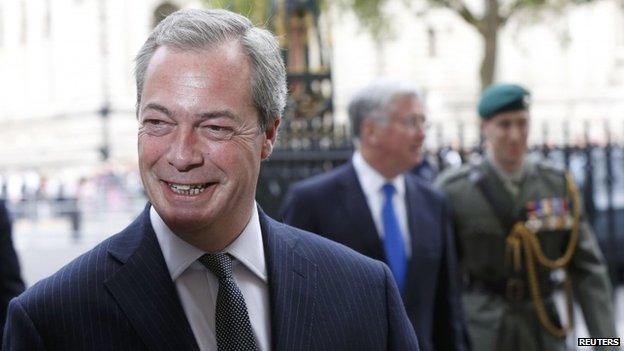
Nigel Farage has "given his all" to building UKIP, a party donor said
But businessman Arron Banks, who gave UKIP £1m last year, told the BBC that Mr Farage had "given his all" to building UKIP and he "deserved a rest rather than petty squabbling from lesser people".
He said Mr O'Flynn "could take a few lessons from Nigel on presentation and communication".
But he conceded UKIP's internal party machinery "needs to be sorted" saying it "no doubt will be looked at".
'Short money row'
The attack on Mr Farage comes amid a separate row after UKIP's only MP, Douglas Carswell, resisted pressure from the party to claim £650,000 of taxpayers' money to fund up to 15 additional members of staff.
In a meeting with Mr Farage, Mr Carswell refused to budge from his position on the funds, which are available from public "short money" allocated to opposition parties to help cover their parliamentary costs.
Party sources said the meeting ended without a final decision being reached on what to do about the money.
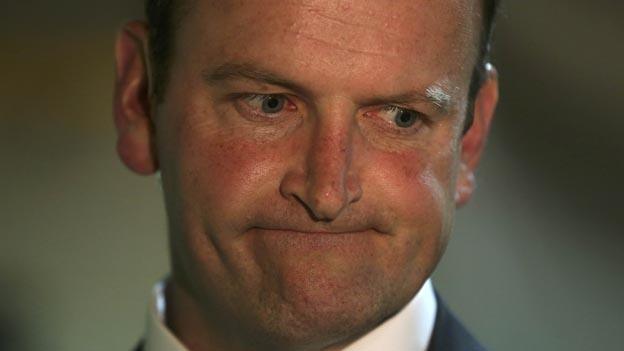
MP Douglas Carswell has refused to claim £650,000 of Short money
Parties in the House of Commons receive about £16,700 per seat, as well as an additional £33.33 for every 200 votes won nationally in the general election.
Under the system, operating since 1975, the money can be claimed by any party with two or more seats in the Commons, or parties with one seat that won more than 150,000 votes across the country.
Because UKIP secured almost 3.9 million votes, but only one Commons seat, Mr Carswell is entitled to far more short money than any other MP.
But the MP said it would be "completely inappropriate" to take the money.
- Published13 May 2015
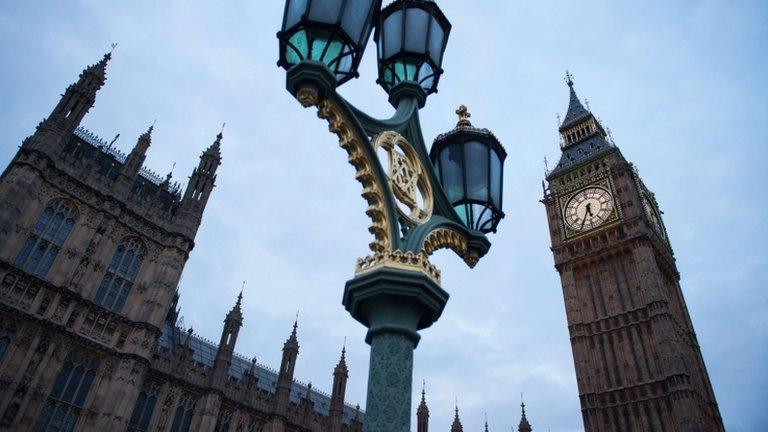
- Published13 May 2015
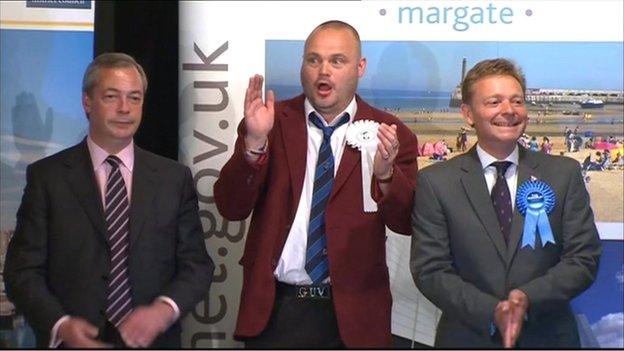
- Published13 May 2015
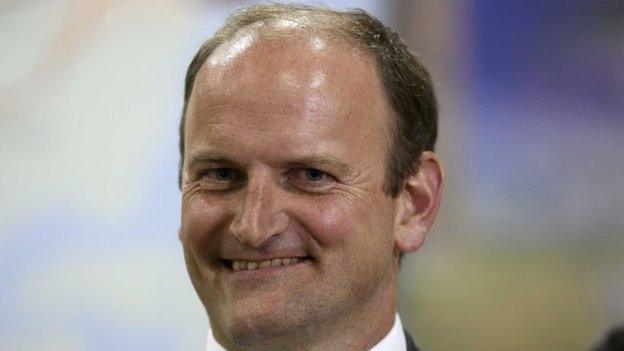
- Published11 May 2015
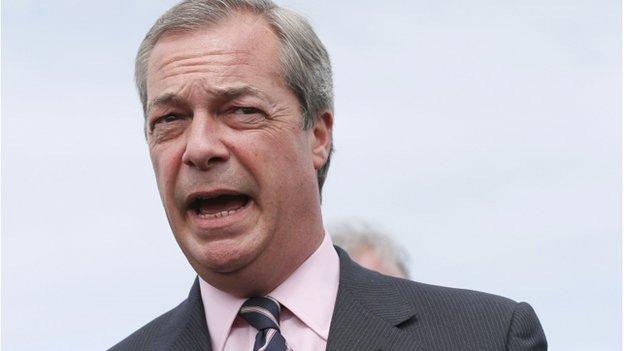
- Published8 May 2015
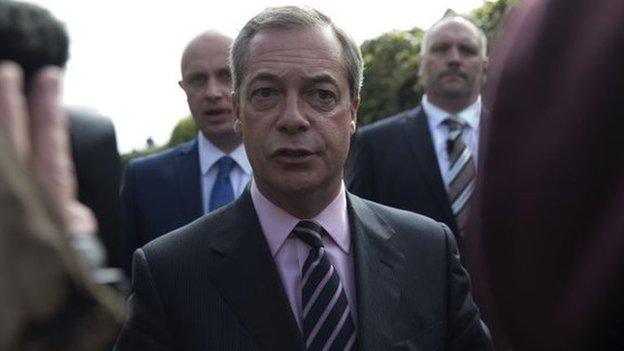
- Published13 May 2015
